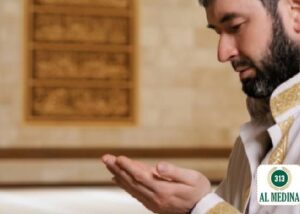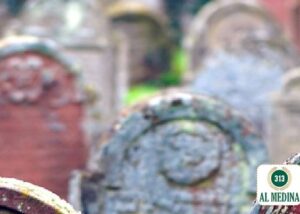Is there evidence to prove the living can benefit the dead (Isaal al-Thawab)?
Quran
Hadith
Islamic Text
Yes, there is evidence to support the living can benefit the dead (Isaal al-Thawab) in the Holy Quran and authentic Sunnah.
وَالَّذِينَ جَاءُوا مِنْ بَعْدِهِمْ يَقُولُونَ رَبَّنَا اغْفِرْ لَنَا وَلِإِخْوَانِنَا الَّذِينَ سَبَقُونَا بِالْإِيمَانِ وَلَا تَجْعَلْ فِي قُلُوبِنَا غِلًّا لِلَّذِينَ آمَنُوا رَبَّنَا إِنَّكَ رَءُوفٌ رَحِيمٌ
And those who came after them say: Our Lord Forgive us and our brethren who were before us in the faith, and place not in our hearts any rancour toward those who believe. Our Lord! You are compassionate, Merciful. (Surah al-Hashr, 10).
In the Holy Ayah above we find later Muslims making Dua for earlier Muslims. This is no doubt a permitted and beneficial action which is why the scholars are agreed upon it.
وَقد نقل غير وَاحِد الْإِجْمَاع على أَن الدُّعَاء ينفع الْمَيِّت وَدَلِيله من الْقُرْآن قَوْله تَعَالَى {وَالَّذين جاؤوا من بعدهمْ يَقُولُونَ رَبنَا اغْفِر لنا وَلِإِخْوَانِنَا الَّذين سبقُونَا بِالْإِيمَان}. (شرح الصدور بشرح حال الموتى والقبور)
And a number of people narrated scholarly consensus (Ijma) upon the fact that supplication (Dua) benefits the deceased. Evidence for it is found in the Quran, His (Most High) saying: And those who came after them say: Our Lord Forgive us and our brethren who were before us in the faith. (Imam al-Sayuti, Sharh al-Sudoor bi-Sharh Hal al-Mowtaa wa al-Quboor).
As for the Sunnah, there are numerous Hadith that prove the concept of the living benefiting the dead (Isaal al-Thawab).
عَنْ أَبِي هُرَيْرَةَ، أَنَّ رَسُولَ اللهِ صَلَّى اللهُ عَلَيْهِ وَسَلَّمَ، قَالَ: إِذَا مَاتَ الْإِنْسَانُ انْقَطَعَ عَنْهُ عَمَلُهُ إِلَّا مِنْ ثَلَاثَةٍ: إِلَّا مِنْ صَدَقَةٍ جَارِيَةٍ، أَوْ عِلْمٍ يُنْتَفَعُ بِهِ، أَوْ وَلَدٍ صَالِحٍ يَدْعُو لَهُ
Abu Huraira (May Allah Most High be pleased with him) reported that Allah’s Messenger ﷺ said, ‘When a man dies, his deeds come to an end except for three, ongoing charity, knowledge which is benefited from, or a pious child who prays for him.’ (Sahih Muslim, 1631 – 14).
The Hadith above mentions that deeds come to an end upon a person’s death, with the exception of three specific deeds. This Hadith is often quoted by people who say, you cannot do anything for the dead. Firstly the Hadith itself proves this statement to be false. As the blessed Hadith mentions the Dua of a child benefiting. Therefore, people must desist from saying the living cannot do anything for the dead. Since it is clear that a child can supplicate for the deceased.
Secondly this Hadith cannot be isolated rather it must be understood in the context of other Hadith that speak about the same issue. The following Hadith narrations make it clear that other actions can benefit the dead too.
عَنِ ابْنِ عَبَّاسٍ رَضِيَ اللَّهُ عَنْهُمَا، أَنَّ امْرَأَةً مِنْ جُهَيْنَةَ، جَاءَتْ إِلَى النَّبِيِّ صَلَّى اللهُ عَلَيْهِ وَسَلَّمَ، فَقَالَتْ: إِنَّ أُمِّي نَذَرَتْ أَنْ تَحُجَّ فَلَمْ تَحُجَّ حَتَّى مَاتَتْ، أَفَأَحُجُّ عَنْهَا؟ قَالَ: نَعَمْ حُجِّي عَنْهَا، أَرَأَيْتِ لَوْ كَانَ عَلَى أُمِّكِ دَيْنٌ أَكُنْتِ قَاضِيَةً؟ اقْضُوا اللَّهَ فَاللَّهُ أَحَقُّ بِالوَفَاءِ
Ibn `Abbas (May Allah Most High be pleased with him) said, A woman from the tribe of Juhaynah came to the Prophet ﷺ and said, “My mother had vowed to perform Hajj but she died before performing it. Should I perform Hajj on my mother’s behalf?” The Prophet ﷺ replied, ‘Yes, perform Hajj on her behalf. Had there been a debt on your mother, would you have paid it? Pay Allah’s debt, as He has more right to be paid.’ (Sahih al-Bukhari, 1852).
Some people misunderstand the Hadith in Sahih Muslim (above) from another perspective. They say, only the Dua of one’s own child benefits, not the Dua of others. However, the following Hadith has the Prophet ﷺ encouraging the Sahabah to make Dua for a deceased Muslim who was not related to them by blood.
عَنْ أَبِي هُرَيْرَةَ رَضِيَ اللَّهُ عَنْهُ، قَالَ: نَعَى لَنَا رَسُولُ اللَّهِ صَلَّى اللهُ عَلَيْهِ وَسَلَّمَ النَّجَاشِيَّ صَاحِبَ الحَبَشَةِ، يَوْمَ الَّذِي مَاتَ فِيهِ، فَقَالَ: اسْتَغْفِرُوا لِأَخِيكُمْ
Abu Huraira (May Allah Most High be pleased with him) said, Allah’s Messenger ﷺ informed us of the death of Negus (Najashi), the king of Abyssinia, on the very day on which he died, and he ﷺ said, ‘Seek Allah’s forgiveness for your brother.’ (Sahih al-Bukhari, 1327).
There are many examples of the Sahabah giving charity on behalf of others in the Sunnah and the holy Prophet ﷺ encouraging them to do so.
ابْنُ عَبَّاسٍ رَضِيَ اللَّهُ عَنْهُمَا: أَنَّ سَعْدَ بْنَ عُبَادَةَ رَضِيَ اللَّهُ عَنْهُ تُوُفِّيَتْ أُمُّهُ وَهُوَ غَائِبٌ عَنْهَا، فَقَالَ: يَا رَسُولَ اللَّهِ إِنَّ أُمِّي تُوُفِّيَتْ وَأَنَا غَائِبٌ عَنْهَا، أَيَنْفَعُهَا شَيْءٌ إِنْ تَصَدَّقْتُ بِهِ عَنْهَا؟ قَالَ: «نَعَمْ» ، قَالَ: فَإِنِّي أُشْهِدُكَ أَنَّ حَائِطِيَ المِخْرَافَ صَدَقَةٌ عَلَيْهَا
Ibn `Abbas (May Allah Most High be pleased with him) said, the mother of Sa`d bin ‘Ubadah (May Allah Most High be pleased with him) died in his absence. He said, “O Allah’s Messenger ﷺ My mother died in my absence; will it be of any benefit for her if I give Sadaqah on her behalf?” The Prophet ﷺ said, “Yes.” Sa`d said, “I make you a witness that I have given my orchard, al-Mikhraaf, in charity on her behalf. (Sahih al-Bukhari, 2756).
عَنْ أَبِي هُرَيْرَةَ، أَنَّ رَجُلًا قَالَ لِلنَّبِيِّ صَلَّى اللهُ عَلَيْهِ وَسَلَّمَ: إِنَّ أَبِي مَاتَ وَتَرَكَ مَالًا، وَلَمْ يُوصِ، فَهَلْ يُكَفِّرُ عَنْهُ أَنْ أَتَصَدَّقَ عَنْهُ؟ قَالَ: نَعَمْ
Abu Hurairah (May Allah Most High be pleased with him) narrated that a man asked the Messenger of Allah ﷺ: “My father died and left behind wealth, but he did not make a will. Will it expiate for him if I give charity on his behalf?” He said: “Yes.” (Sahih Muslim, 1630 – 11).
There are many other examples of the living doing deeds and benefiting the dead (Isaal al-Thawab) in the Sunnah, it can be as simple as placing something green on a grave.
عَنِ ابْنِ عَبَّاسٍ رَضِيَ اللَّهُ عَنْهُمَا، مَرَّ النَّبِيُّ صَلَّى اللهُ عَلَيْهِ وَسَلَّمَ عَلَى قَبْرَيْنِ فَقَالَ: «إِنَّهُمَا لَيُعَذَّبَانِ وَمَا يُعَذَّبَانِ مِنْ كَبِيرٍ» ثُمَّ قَالَ: «بَلَى أَمَّا أَحَدُهُمَا فَكَانَ يَسْعَى بِالنَّمِيمَةِ، وَأَمَّا أَحَدُهُمَا فَكَانَ لاَ يَسْتَتِرُ مِنْ بَوْلِهِ» قَالَ: ثُمَّ أَخَذَ عُودًا رَطْبًا، فَكَسَرَهُ بِاثْنَتَيْنِ، ثُمَّ غَرَزَ كُلَّ وَاحِدٍ مِنْهُمَا عَلَى قَبْرٍ، ثُمَّ قَالَ: لَعَلَّهُ يُخَفَّفُ عَنْهُمَا مَا لَمْ يَيْبَسَا
Ibn `Abbas (May Allah Most High be pleased with him) said, the Prophet ﷺ passed by two graves and said, “They are being punished, but not for something great.” And then he ﷺ added, “Yes, one of them used to spread Nameemah while the other did not take care in preventing urine from soiling him.” He (Ibn `Abbas said, then he ﷺ took a date palm stalk and split it into two pieces, then he ﷺ planted one piece on each grave and said, “Their punishment may be lightened whilst they remain fresh.” (Sahih Bukhari, 1378).
These are various ways people may help the deceased in this life. As for the Akhirah, we have the concept of Shafa’ah (intercession), which is established for Prophets and non-prophets in sound Hadith narrations.
We find many forms of Isaal al-Thawab (the living benefiting the dead) in the Sunnah. Due to the varied range of deeds that were accepted for this purpose many scholars considered it to be a general principle that any Nafl deed can be offered, others were more restrictive. However, all agreed with the general concept of Isaal al-Thawab, the living benefit the deceased.
And Allah Most High Knows Best.
-Answered by Shaykh Noorud-deen Rashid (15.03.2022)
See also:
Who will the Holy Prophet ﷺ intercede for?
See also video:






